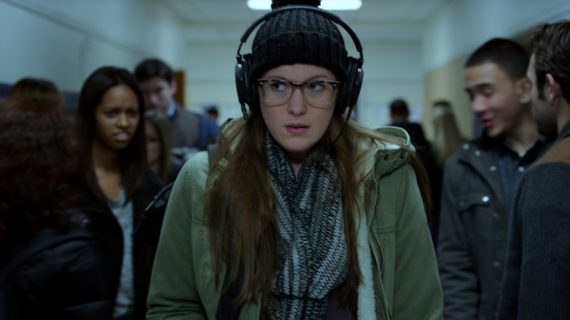Marisa Wojcik:
We now hear from across the aisle, where feedback has been less favorable of Biden’s plans. Republican Congressman Mike Gallagher joins us now from Green Bay, and Representative Gallagher, thank you so much for being here today.
Mike Gallagher:
Thanks for having me.
Marisa Wojcik:
You released a statement yesterday saying the president’s agenda was too expansive and the people of Wisconsin want, “less not more government intervention in their lives.” Is that what you heard from constituents?
Mike Gallagher:
Yeah. I think the biggest thing I’ve heard at least economically going around northeast Wisconsin and talking to businesses of all sizes, given the unique economic position we’re in trying to come out of coronavirus strong is just that we need workers. Every business in Wisconsin is struggling to find people to work. And that’s going to be a real constraint to growth in Wisconsin going forward. And so that’s kind of the biggest economic issue. And my concern is the longer we extend the federal government plus up of unemployment or give people direct checks we might create a disincentive to work which ends up being bad for the state of Wisconsin and communities like mine. As for infrastructure, I think we’re all united on the idea we want to make a smart investment in infrastructure, but we have to be very diligent and disciplined in how we spend that money as well as how we raise funds for infrastructure going forward.
Marisa Wojcik:
And you have criticized the price tag of President Biden’s plans but he did say he’ll pay for it by taxing the wealthiest 1% who have been evading what Biden calls their fair share citing American billionaires increased their net wealth during the pandemic while the rest of the country struggled. Why couldn’t this solution fund his plans?
Mike Gallagher:
Well just as a matter of math, there isn’t enough money from the so-called 1% to fund these very expansive and ambitious plans. We’re talking about trillions and trillions and trillions of dollars, effectively doubling the size of the federal government in terms of spending after we just spend upwards of $4 trillion. Actually we allocated that much money which has not been spent yet — a lot of which has not yet been spent yet at the state level. So at a time when state, local and county governments are trying to figure out how do they spend the money they just got from the federal government to help Wisconsinites that might need help, I’m not sure it makes sense to tax more Wisconsinites in order to fund more spending when we’re not even done with the last round. I worry about the effect it will have on economic growth at a time when we’re poised to have explosive economic growth because of the pent-up demand that we’ve had from coronavirus. And over the long term, I’m all about getting American jobs back here in America, growing Wisconsin jobs and if we have an uncompetitive tax code relative to our international competitors like communist China and Biden would raise the corporate tax rate 3% higher than communist China, we’re going to see a ton of Wisconsin jobs get outsourced to overseas. That’s going to hurt our community. We need to be bringing those jobs back here to America, incentivizing American manufacturing. We want Wisconsin to emerge as the hub for that next generation of high-tech manufacturing. And we can do it if we get a few things right and a big part of that is our tax code, making sure it’s competitive.
Marisa Wojcik:
In his American Families Plan, Biden is proposing expanding universal education past K-12 to include free preschool and two years of community college arguing this is how the United States is going to compete with the world and win the 21st century. You’ve used this language of winning and losing in reference to China. Do you support Biden’s expanded investment in education?
Mike Gallagher:
I don’t. But I do think this is a key point that education, K-12 education really used to be America’s big advantage, right? We used to be top in the world and measured by the international PISA exam, American education has really been sliding slowing into a state of mediocrity. And similarly, Wisconsin used to be top five in terms of education. We were known as an education powerhouse. But our ranking has similarly fallen into mediocrity. Before we spend trillions more dollars on expanding mediocre education, I think we really need to figure out how do we get K-12, at least in Wisconsin, back to the top of the heap? Our goal should be to have the number one K-12 system in the country by 2030. And common sense to me dictates that we need to focus on the system as it exists now, before we dramatically expand it. Again, I’m not sure allowing people to go to college for free, even if it’s just community college, is the right way. In fact, I think the big thing we’ve learned over the last two decades through painful trial and error is not every kid needs to go to college. In fact, I think the message we need to be sending to our high school seniors is you can go right into the workforce. You can work for Marinette Marine, Oshkosh Truck, any manufacturer in Wisconsin and you can earn a heck of a living and you can be saving for when you want to start a family. You’ll have a house before your colleagues who went to college and are drowning in a mountain of debt. I almost think that’s the opposite direction we need to be going in.
Marisa Wojcik:
With under a minute left, you do see eye to eye with Democrats on the Endless Frontier Act which would invest billions into technology and research manufacturing. Biden’s jobs proposal also invests billions into research and development of new technologies. Do you support that and do you think this will lead to more and better jobs?
Mike Gallagher:
I support carving out an area of bipartisan agreement where we can invest in the technology of the future. What we learned in coronavirus is we’re too dependent on a hostile foreign power in communist China for manufacturing of life-saving drugs. I had a bill with Mark Pocan and Mark and I don’t agree on a lot on how we bring that manufacturing back to the United States. The same is true for semiconductors, rare earth, AI, robotics. I co-chair a supply chain task force. We are going to have to invest smartly to bring that manufacturing of critical technology back to the United States to make sure we are the global hub for innovation and future technology and that everyone still wants to come to America because we’re the greatest country in the world.
Marisa Wojcik:
We need to leave it there. Representative Mike Gallagher, thank you so much for joining us.
Mike Gallagher:
Thank you.
Search Episodes
Related Stories from PBS Wisconsin's Blog

Donate to sign up. Activate and sign in to Passport. It's that easy to help PBS Wisconsin serve your community through media that educates, inspires, and entertains.
Make your membership gift today
Only for new users: Activate Passport using your code or email address
Already a member?
Look up my account
Need some help? Go to FAQ or visit PBS Passport Help
Need help accessing PBS Wisconsin anywhere?

Online Access | Platform & Device Access | Cable or Satellite Access | Over-The-Air Access
Visit Access Guide
Need help accessing PBS Wisconsin anywhere?

Visit Our
Live TV Access Guide
Online AccessPlatform & Device Access
Cable or Satellite Access
Over-The-Air Access
Visit Access Guide
 Passport
Passport








Follow Us